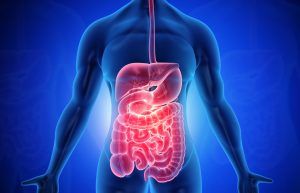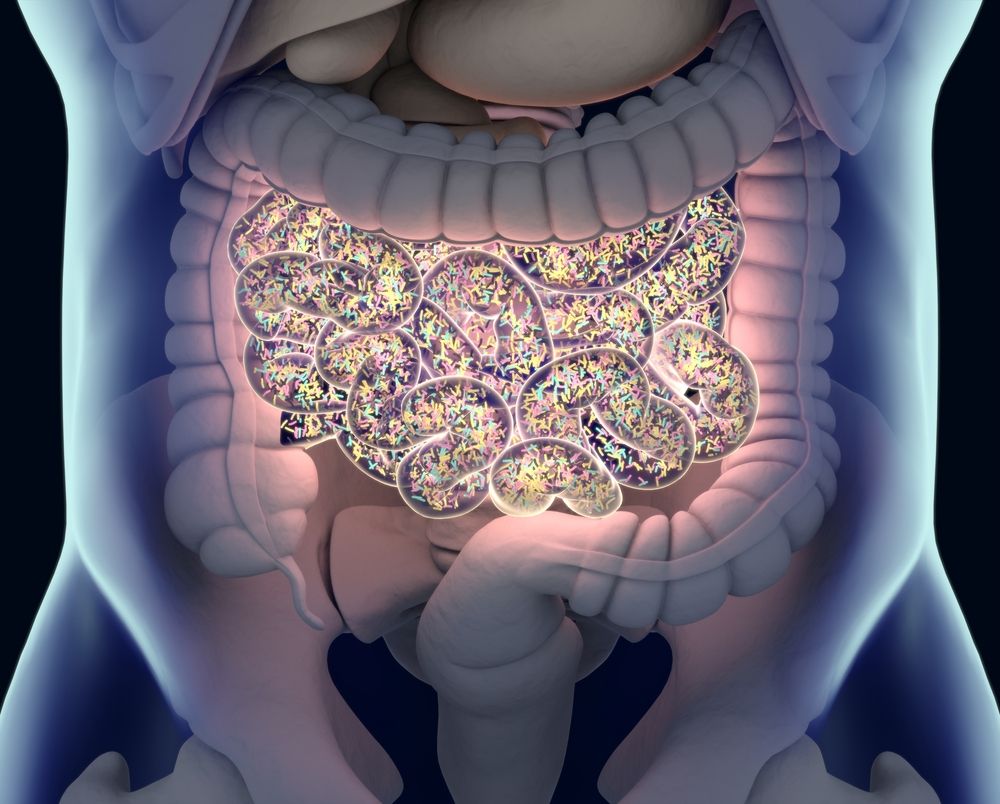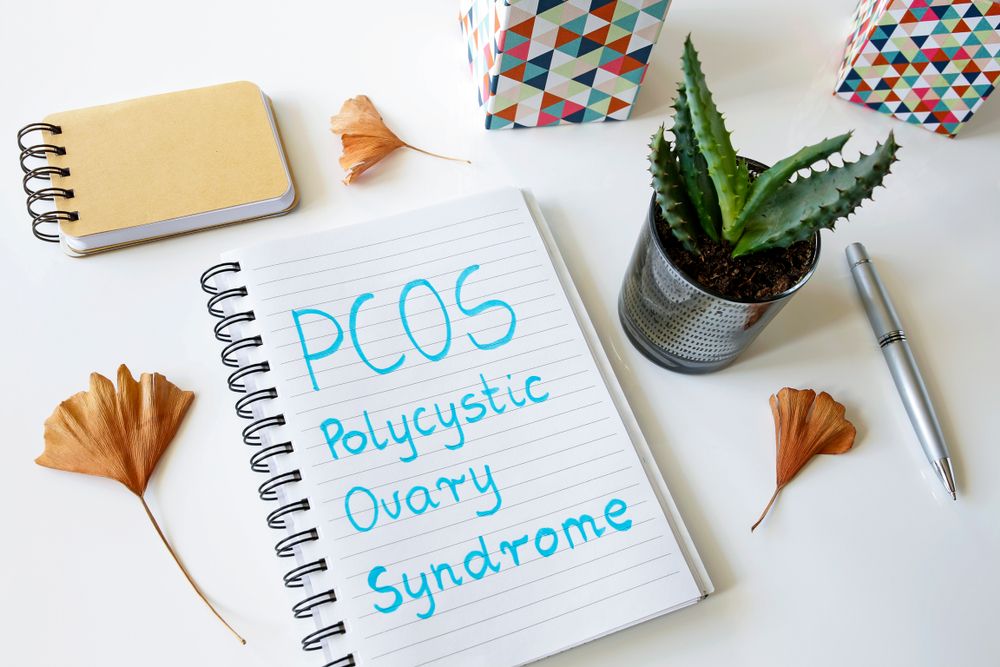There is a direct and evidentiary connection between good health and good nutrition. Numerous studies support the notion that eating healthy foods will decrease the likelihood of developing certain chronic medical conditions, including certain cancers. Eating unhealthy foods can actively contribute to their development. (Learn More: How Does Nutrition Contribute to Good Health?)
Food provides us with the nutrients we need to repair our organs on a cellular level and prevent disease. Almost every diagnosable disease can be positively impacted by healthy nutrition. (Learn More: What Diseases Are Positively Impacted by Healthy Food Choices?)
On the other hand, poor nutrition can create health problems, contributing to both chronic disease and mental health issues. Obesity, specifically, is a major concern. With obesity comes an overall increased risk of premature death, as the issue has been found to cause a range of deadly diseases directly. (Learn More: What Does Obesity Have to Do With Nutrition and Health?)
The good news is that a healthy diet does not mean maintaining a 24-hour commitment to eating boring and unvaried meals. Choosing an 80/20 approach wherein healthy food choices are made 80 percent of the time can improve overall health, maintain a positive weight, and limit the experience of depression and other mental health issues. (Learn More: Is It ‘All or Nothing’ When It Comes to Getting the Benefits of Healthy Nutrition?)
With a little bit of experimentation and a dedication to trying new things and finding what works for your lifestyle and personality, it is possible to avoid obesity, limit exposure to potentially toxic food sources, and maximize nutritive value at each meal. When you find a healthy diet that works for you, you can increase your ability to manage chronic illness and prevent disease. (Learn More: How to Find the Diet That Is Right for Your Needs)
How Does Nutrition Contribute to Good Health?
The primary role of food is to fuel and repair our bodies. In addition to providing the calories we need to keep our brains working at peak levels and the body in a constant state of restoration and upkeep, food supplies the nutrients necessary to keep those processes efficient and effective.
The primary two types of nutrition include macronutrients and micronutrients.
- Carbohydrates: An energy macronutrient, carbohydrates contain four kcals of energy per gram. They include monosaccharides, polysaccharides, and disaccharides.

- Protein: Another energy macronutrient, proteins provide four kcals of energy per gram and include 20 amino acids, some that are ingested through food and others that are created by the body.
- Fat: The last energy macronutrient, fats are triglycerides that contain 9 kcal of energy per gram.
- Fiber: Fiber is a non-energy-providing macronutrient that mostly consists of carbohydrates.
- Water: Another non-energy-providing macronutrient that makes up about 70 percent of the mass of the body not created by fat.
- Vitamins: Vitamins are micronutrients that we need in small amounts and must get from a food source. There are 13 vitamins that we need in varying amounts — vitamins A, D, K, and E, which are fat-soluble, and eight B vitamins and vitamin C, which are water-soluble.
- Minerals: Minerals include the chemical elements our body needs in addition to oxygen, carbon, hydrogen, and nitrogen. With a healthy diet, the necessary amounts are easily maintained. Some common minerals include potassium, sodium, calcium, chloride, magnesium, phosphorus, zinc, iron, copper, iodine, and selenium.
When we eat healthfully, nutrients also serve to boost the immune system and help us to fend off disease, giving us the building blocks we need to maintain optimal mental and physical health. It also contributes to a healthy microbiome or positive gut health. This, in turn, enhances the body’s ability to process food and impacts the release of neurotransmitters related to mental function and cognitive response.
Additionally, a steady and habitual focus on eating healthfully can help to prevent the development of chronic disease, premature death, and the exacerbation of mental health symptoms.
What Diseases Are Positively Impacted by Healthy Food Choices?
Symptoms of almost any chronic disease will be improved with a focus on healthy nutrition. For example:
- Those who struggle with chronic pain may find their symptoms relieved somewhat with a loss of excess weight through healthy eating.
- Patients struggling with liver disease or at risk of liver disease will benefit from a diet that is low in fat, sugar, and salt, absent of undercooked or raw shellfish, and includes little to no alcohol.
- Regulating portion size, eating more fruits and vegetables, limiting unhealthy fats, and including more whole grains can help to prevent heart disease or keep the disease from progressing quickly if it is already an issue.
- For those struggling with chronic kidney disease, it can be helpful to limit fluids, salt, protein, potassium, and other electrolytes. If weight loss is a concern, increasing calorie intake may be beneficial.
- Diabetes can be best managed with a diet that limits sodium, sweets, saturated fat, and trans fats. It can also be helpful to eat at the same time every day or to eat in combination with certain medications.
- Those living with gallbladder problems or at risk of gallstones can benefit from a diet that focuses on low-fat dairy, lean protein sources, whole grains, and fresh fruits and vegetables. Yo-yo dieting and weight loss are specifically warned against as too-rapid weight loss can disrupt the balance of cholesterol and risk the likelihood of gallstone development.
How Can Poor Nutrition Negatively Impact Health and Wellness?
When we fill our bodies with high-calorie, low-nutrient foods, our bodies have a great deal of processing to do with little positive results. All the work that goes into breaking down foods, processing out nutrients, and creating waste creates wear and tear on the body. 
If nutrients are extracted from the food we eat, that wear and tear is balanced with repair and cell regeneration. If there are no nutrients to speak of — or if there are toxins in the food — then we are actually causing damage and contributing to cell mutation.
What Does Obesity Have to Do With Nutrition and Health?
Obesity is a proven contributing factor for the following diseases:
- Heart disease
- High blood pressure
- Sleep apnea and other respiratory issues
- Type 2 diabetes
- Stroke
- Gallbladder disease
- Osteoarthritis
Additionally, studies show that obesity increases the likelihood of developing certain cancers. The higher the body mass index (BMI), the more likely it is that cancers related to the gallbladder, uterus, kidneys, cervix, thyroid, and leukemia will develop, according to a 2014 population-based cohort study. Higher BMI is also positively associated with colon, ovarian, liver, and postmenopausal breast cancers.
Obesity is a major health issue in the U.S.
- As of 2015–2016 data taken from the National Health and Nutrition Examination Survey, about 39.8% of American adults were obese, up from 33.8% in 2011.
- An estimated 20% of children between the ages of 2 and 19 struggle with obesity, a problem directly caused by poor nutrition.
- As of 2008, it was estimated that the medical cost of obesity annually added up to about $147 billion, a $1,400+ increase per person over those who are not obese.
- Households struggle with the cost of obesity in the form of lost workdays due to illness, higher insurance costs, and a correlation with lower wages overall.
Can Nutritional Choices Impact Mental Health?
Many of the neurotransmitters that impact mood and emotional regulation, like serotonin, are produced in the gastrointestinal tract, which means that your digestive system is directly related to your mental health.
What you eat contributes to how much and what kind of neurotransmitters are released as well as how they behave in your system. Your gut biome is made up of billions of bacteria that develop based on the types of food you eat regularly. It takes different kinds of bacteria to process healthy fruits and vegetables versus sugary processed foods. If you are regularly eating what your body perceives as toxins, your body’s response is to mitigate the damage as much as possible. This leaves few resources for optimum functioning.
Eating healthfully means that you build a strong defense against real toxins and bacteria that can harm your body and your emotional function, decrease overall inflammation, and improve the ability to absorb nutrients. All this creates healthy, balanced neural pathways that provide the ideal creation and function of the neurotransmitters you need to manage emotions.
What Are Healthy Foods?
Simply put, healthy foods are whole foods or foods that have been minimally processed or not processed at all. In the grocery store, these foods are often found around the perimeter of the store rather than in the center aisles. They include:
- In-season produce. A variety of fruits and vegetables that are locally grown give you access to nutrient-rich foods. Choosing a few servings of leafy greens, some fruits, and colorful vegetables will help to ensure that you get vitamins and minerals that will help your body stay in balance.
- Whole grains. Rice, oatmeal, barley, and other grains are most likely to give you the fiber and energy you need to keep going. Depending on your caloric needs, you may choose more or fewer servings of whole grains to stay sated.
- Lean protein. Depending on your preference, lean protein sources can include eggs, white meats, and legumes. Small and occasional servings of red meat, certain dairy products, and nuts can also provide protein, but they often come with cholesterol or high-calorie counts, so it’s important to practice moderation.
- Limited sugars, alcohol, and trans fats. Though naturally occurring trans fats have not been identified as harmful, and alcohol and sugar occur in nature, it is still a good idea to limit exposure to these substances as much as possible. If you are living with certain chronic conditions, such as diabetes or addiction, it may be a good idea to abstain completely from foods with added sugar or alcohol of any kind.
What Are Unhealthy Foods?
Though most people assume that the quantity of food alone is to blame for obesity and disease, the fact is that the quality and type of food play a significant role.

Some of the foods or food types that have been identified as most problematic when it comes to longevity and quality of life include:
- Trans fats. As of June 2018, the FDA banned partially hydrogenated oil (the primary source of trans fat) as an ingredient in most processed foods. However, trans fats can naturally occur in animal and dairy products as well as when vegetable oil is chemically altered to increase the shelf life of processed foods. Naturally occurring trans fats are not considered harmful, but trans fats found in processed foods have been linked to an increased risk of cancer.
- Pesticides. Exposure to pesticides occurs when eating conventionally grown produce and when the pesticides are absorbed into the groundwater on and near the fields. Many opt to buy organic produce whenever possible or take advantage of The Environmental Working Group Shoppers Guide, in which they name the “Dirty Dozen,” or the top 12 produce items identified as having the highest levels of pesticides for the season. Limiting exposure to pesticides may limit your risk of disease.
- Sugar. On average, sugar accounts for 10 to 25 percent of the daily American diet — an incredibly high amount. The higher the percentage of calories ingested as sugar, the increased likelihood of developing heart disease. One study found that those who took in 25 percent or more of their calories from sugar were twice as likely to die from heart disease.
- Processed foods. Packaged foods, sodas, dehydrated soups, readymade meals — these are just a few of the foods that are processed to remain edible for months at a time. However, two extensive studies found a distinct correlation between the consumption of processed foods and death due to heart disease.
Is It ‘All or Nothing’ When It Comes to Getting the Benefits of Healthy Nutrition?
You do not have to choose between living off salads alone or eating every meal at a fast-food restaurant. The goal is to practice moderation and to make the most of your meals healthy choices. There are several small changes you can make that add up to big results.
Some options include:
- Purposefully scheduling in glasses of water throughout the day or keeping track of how much you drink to make sure you are getting enough water.
- Choosing to eat small, frequent meals if you tend to overeat after waiting too long between meals.
- Choosing to eat fewer, more substantial meals if you tend to constantly graze and overeat.
- Planning out meals in advance, so you have a plan at the grocery store and limit the number of processed or unhealthy foods you buy.
- Prepping meals and freezing them, so you always have a healthy option available to you.
- Swapping out unhealthy options for a healthy option — like a chicken breast sandwich instead of a hamburger, fruit instead of fries, or vegetables and hummus instead of potato chips.
- Choosing not to keep unhealthy or processed foods in the house.
- Tracking how much you eat, what you eat, and when you eat with a food journal to get a better idea of what you are really consuming.
- Keeping a journal on how you feel so that you can match it with your food journal and identify foods that may be connected to physical and mental health symptoms.
- Asking for accountability and support from family members and close friends who understand that your dietary changes can significantly improve your overall health and wellness.
Is Any One Diet Recommended for Optimum Health?
There is no shortage of diets to choose from, ranging from the highly restrictive to the ideological. Some are created specifically to address issues related to a certain disease or physical condition, while others are touted as a one-size-fits-all miracle guaranteed to cause immediate and rapid weight loss.
The fact is that no one diet is right for everyone. Each individual is unique, with different needs and different abilities to process food. It can take time and patience to try different eating styles to find the right option for you.
Diet Options
- Allergy-based diets: If you are allergic to gluten or lactose, or find that you have a hard time processing these or other ingredients, you may choose to remove foods that contain this ingredient from your diet. This may be more or less complicated depending on the ingredient, and there may be substitutions that make this a simple change.
- Disease-maintenance-based diets: If you are living with a chronic disease or if a disease runs in your family, it makes sense to make eating choices that are intended to decrease your symptoms or chances of developing the disorder.
- Ideological diets: For some, dietary choices are made based on a specific philosophy. For example, some choose to eat organic produce to avoid contributing to a farming system that pollutes the environment. Others seek out local food producers to reduce their carbon footprint attached to their food or to support companies that produce their food in a way that aligns with their ethics and values.
- Religious diets: Many religions ask followers to adhere to certain dietary guidelines to connect more closely with their chosen path. This can mean avoiding certain foods, eating foods in specific combinations, or eating certain foods at definitive times or in celebration of the holidays.
- Balanced diets: In most cases, finding a diet that feels balanced is key to longevity. It is difficult to maintain any dietary changes, no matter how healthy, if you feel that you are hungry or otherwise deprived of foods you crave. Though cravings can indeed change with an improved diet, it can take time. It is critical to transition slowly into new styles of eating to accurately assess whether or not it will work long term.
How to Find the Diet That Is Right for Your Needs
It can take time and experimentation to find the right diet for your needs. Give yourself permission to try a range of different options with the understanding that it may take a few months to determine what works.
You can:
- Begin by talking with your doctor. If you are diagnosed with a mental or physical condition and/or
 you are taking medication to manage a disorder of any kind, it is imperative to start your journey with a discussion with your doctor. Let them know your intention and ask them for their recommendations. If you are considering a specific diet, talk about it and ask questions, particularly if you are considering a diet that includes dropping an entire food group from your meal choices.
you are taking medication to manage a disorder of any kind, it is imperative to start your journey with a discussion with your doctor. Let them know your intention and ask them for their recommendations. If you are considering a specific diet, talk about it and ask questions, particularly if you are considering a diet that includes dropping an entire food group from your meal choices.
- Create a meal plan in advance. Most healthy diets do not include prepackaged food, so meal prep will be necessary. Choose recipes you would like in advance, create a shopping list, and set aside time to meal prep in advance as much as possible. This way, you will not be tempted to grab something that is off your plan when you are hungry or in a rush.
- Track your progress. Keep track, not only of what you eat but when, how much, and how you feel. If you have symptoms associated with a chronic disorder or are struggling with low energy or inability to sleep, note this as well. The idea is to be able to look back and identify how your food choices are impacting your life and to be able to make changes as needed.
- Make alterations to your diet as needed. It is highly unlikely that you will find the perfect combination of diet and exercise that keeps you motivated and healthy right out of the gate. Keep an open mind and discuss outcomes with your nutritionist and/or your personal physician. If you try things that don’t work for you and you have a hard time maintaining, acknowledge it. Rather than forcing yourself to continue, opt to try something new that is better suited to your personality and lifestyle.
- Increase your accountability. If you have a doctor to talk to about your dietary changes or a friend to encourage you along the way, you will be more likely to stick with your new healthy choices and take more careful note of your progress. The more support you have, the more likely you are to continue, and the longer you continue, the more data you will have. Ultimately, you will find a diet that works best for your needs.
References
Nutrition: What Is It and Why Is It Important? (September 2017). Medical News Today
Role of the Gut Microbiota in Nutrition and Health. (June 2018). Science and Politics of Nutrition.
A Healthier Diet, a Healthier Liver, a Healthier You. (2017). American Liver Foundation.
Heart Healthy Diet: 8 Steps to Prevent Heart Disease. (January 2019). Mayo Clinic.
Diet: Chronic Kidney Disease. (September 2019). U.S. National Library of Medicine.
Diabetes diet: Create your healthy-eating plan. (February 2019). Mayo Clinic.
Diet Tips For a Healthy Gallbladder. (April 2017). Medical News Today.
Your Digestive System and How It Works. (December 2017). The National Institutes of Health (NIH) National Institute of Diabetes and Digestive and Kidney Diseases.
Health Risks Linked to Obesity. (April 2018) WebMD.
Body-mass index and risk of 22 specific cancers: a population-based cohort study of 5·24 million UK adults. (August 2014) Lancet.
Prevalence of Obesity Among Adults and Youth: United States, 2015–2016. (October 2017) Centers for Disease Control and Prevention (CDC).
Adult Obesity Facts. (August 2018) Centers for Disease Control and Prevention (CDC).
Obesity Prevention Source. (2012) Harvard University.
50 Foods That Are Super Healthy (June 2019) Healthline.com.
Nutritional psychiatry: Your brain on food. (November 2015) Harvard Health Publishing: Harvard Medical School.
What Are Trans Fats and Are They Bad for You? (July 2019) Healthline.com
EWG’s 2019 Shopper’s Guide to Pesticides in Produce. (2019) The Environmental Working Group.
Eating too much added sugar increases the risk of dying with heart disease. (February 2014) Harvard Health Publishing: Harvard Medical School.
New evidence links ultra-processed foods with a range of health risks. (March 2019) Science Daily.
Water: How Much Should You Drink Every Day? (September 2017) Mayo Clinic
Eat to Ease Your Allergies. (2015) WebMd.com
Modern Eating Ideologies: How and Why We Diet Today. (September 2016) Forbes Magazine.
Balanced Diet: What It Is and How to Achieve It. (February 2016) Healthline.com
Tracking Your Progress for Health and Fitness Success. (September 2014) Huffington Post.
10 Ways to Stay Accountable for Weight Loss. (2015) Everyday Health.



 you are taking medication to manage a disorder of any kind, it is imperative to start your journey with a discussion with your doctor. Let them know your intention and ask them for their recommendations. If you are considering a specific diet, talk about it and ask questions, particularly if you are considering a diet that includes dropping an entire food group from your meal choices.
you are taking medication to manage a disorder of any kind, it is imperative to start your journey with a discussion with your doctor. Let them know your intention and ask them for their recommendations. If you are considering a specific diet, talk about it and ask questions, particularly if you are considering a diet that includes dropping an entire food group from your meal choices.







